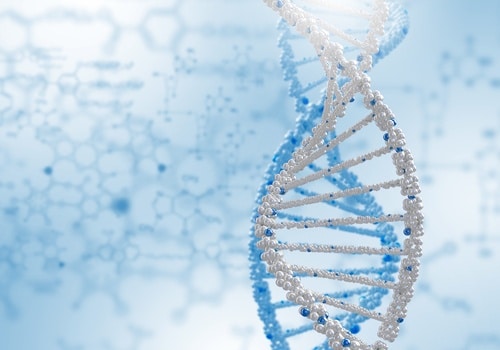

Is Drug Addiction Genetic?
When it comes to disease and behavioral patterns in people, the debate between nature vs. nurture has been going on for decades. How much does genetics dictate how likely we are to get a disease and how much it is based on our environment? Those same questions have also been circulating when talking about addiction and mental illness. Scientists are trying to determine the answer to, is drug addiction genetic?

Some Basics About Genetics
Genes in and of themselves don’t directly cause disease or addictions. They create proteins that each have discrete functions. These proteins, coded by the genes, often interact with each other, producing manifestations known as phenotypes. Different patterns of genes produce different phenotypes.
Some illnesses result from a phenotype that is the result of an aberrant variation of a single gene. Huntington’s disease is one such illness. A single defective gene produces a protein called huntingtin, which results in the disease. Addiction and mental illness, however, do not have such a causal relationship to a single gene.
Addiction, Mental Illness, And Genetics
There isn’t one single genetic predisposition to addiction or mental illness. Rather, it’s a complex trait that may suggest that an individual may be more vulnerable or prone to addiction or mental illness.
Current scientific wisdom suggests that the root causes are multiple genes plus environmental factors that dictate whether someone might be more susceptible. Conversely, these factors can also cancel each other out, meaning that one might be less vulnerable to addiction or mental illness.
In recent years, using animal models, scientists have isolated several genes suspected of contributing to addiction. Researchers have identified that certain genes were more commonly found in people with certain types of addictions. For example, the dopamine receptor gene DRD2 is more common in alcoholics and cocaine addicts, but people with two copies of the ALDH*2 gene variation rarely suffer from alcoholism. They have also seen that certain genes might affect a person’s response to certain drugs, influencing their withdrawal symptoms and making some people more likely to consume larger amounts of alcohol.
Similar breakthroughs in the field of genetics and mental illness have been occurring. For example, researchers have found over one hundred genetic markers that appear to contribute to a higher risk of schizophrenia.
The Combination Of Genetics And Environment
Often, serious mental illnesses such as schizophrenia first manifest during late adolescence or early adulthood. It’s widely recognized that chronic stress can considerably augment a person’s chances of developing a mental illness, particularly if they are genetically predisposed.
A study conducted by Minae Niwa of the Johns Hopkins Department of Psychiatry and Behavioral Sciences suggests that exposure to chronic stress during adolescence can affect the function of certain genes that are known to contribute to the likelihood of certain mental illnesses developing.
In other words, it would suggest that it isn’t simply a matter of a genetic predisposition in combination with certain environmental factors that results in mental illness, but rather how the environment can influence the function of certain genes.

How Genetics Could Alter The Treatment Of Addiction And Mental Illness
Niwa’s team conducted some experiments on mice to replicate mental illness. Their findings suggest that perhaps by medically controlling the interaction between cortisol (a hormone secreted when someone is experiencing stress) and dopamine (neurons that recognize cortisol located in the brain’s prefrontal cortex where emotional control and cognition is centered), they might prevent the onset of mental illness, or diminish mental illness symptoms. While they’ve seen some encouraging results with mice, it has yet to be proven successful in humans.
In the field of inpatient drug rehab, it’s widely recognized that patients are more likely to experience a successful recovery if their treatment program has been specifically tailored for them. It’s quite conceivable that genetic testing could become an important part of rehab in the not-too-distant future as a means to match specific treatment protocols with each individual better.
Identifying genes and their specific correlation to addiction or mental health allow pharmaceutical researchers to develop medications that will target those genes and modify their activity.
This is done in the hopes that it will adjust the brain’s response, help to stabilize it, and return it to normal function. Several independent studies looking into how enzymes and other proteins coded by certain genes might predict the effectiveness of certain medications in the treatment of specific mental illnesses have proven to be inconclusive thus far.
Inpatient Rehab Genetic Testing
While genetic testing shows a great deal of promise in preventing and treating certain illnesses, we’re not quite there yet. There isn’t currently a genetic test that can definitively determine if an individual will eventually fall victim to addiction or mental illness. Furthermore, a genetic predisposition or one’s vulnerability to becoming addicted doesn’t mean that it is one fate.
Patients sometimes mistakenly believe that their case is hopeless because they come from a long line of alcoholics or addicts. As mentioned earlier, genetics is only one piece of the puzzle. The success or failure of other family members to recover from addiction through rehab is not indicative of the results that they may experience.
A magic bullet that instantly cures individuals of their addiction or mental illness still does not exist. And despite the breakthroughs in the field, genetic science isn’t likely to deliver one in the foreseeable future. But perhaps it can serve as another valuable tool in the successful treatment of addiction. Inpatient rehab remains the best and most viable way to achieve lasting sobriety for most people.


